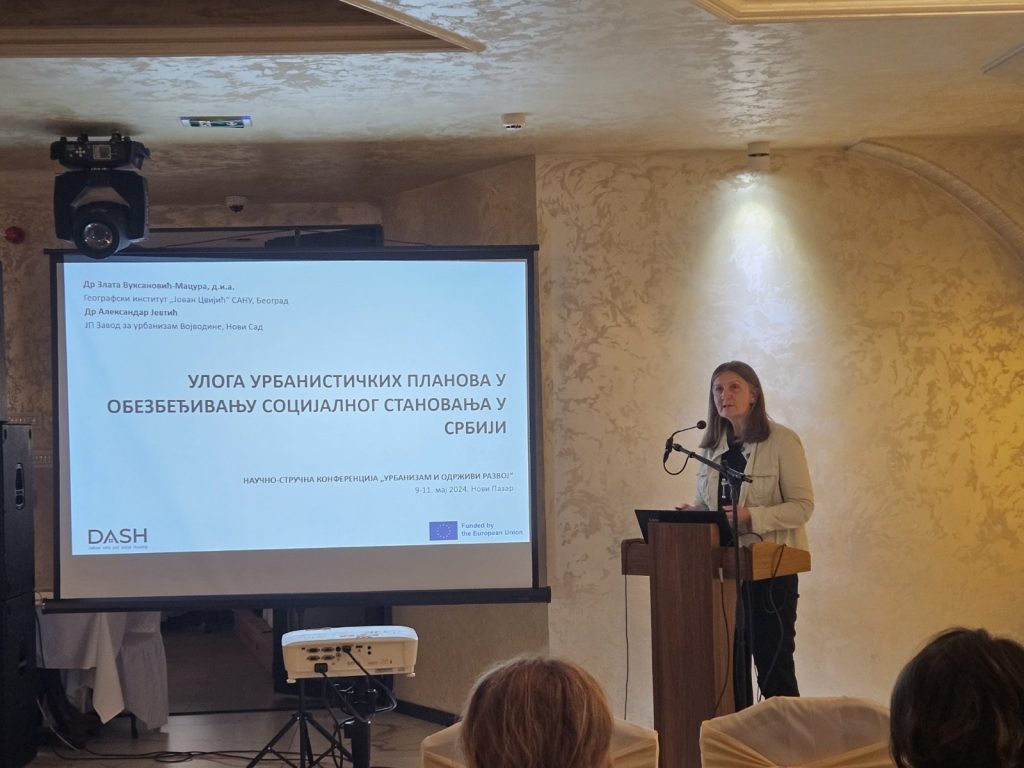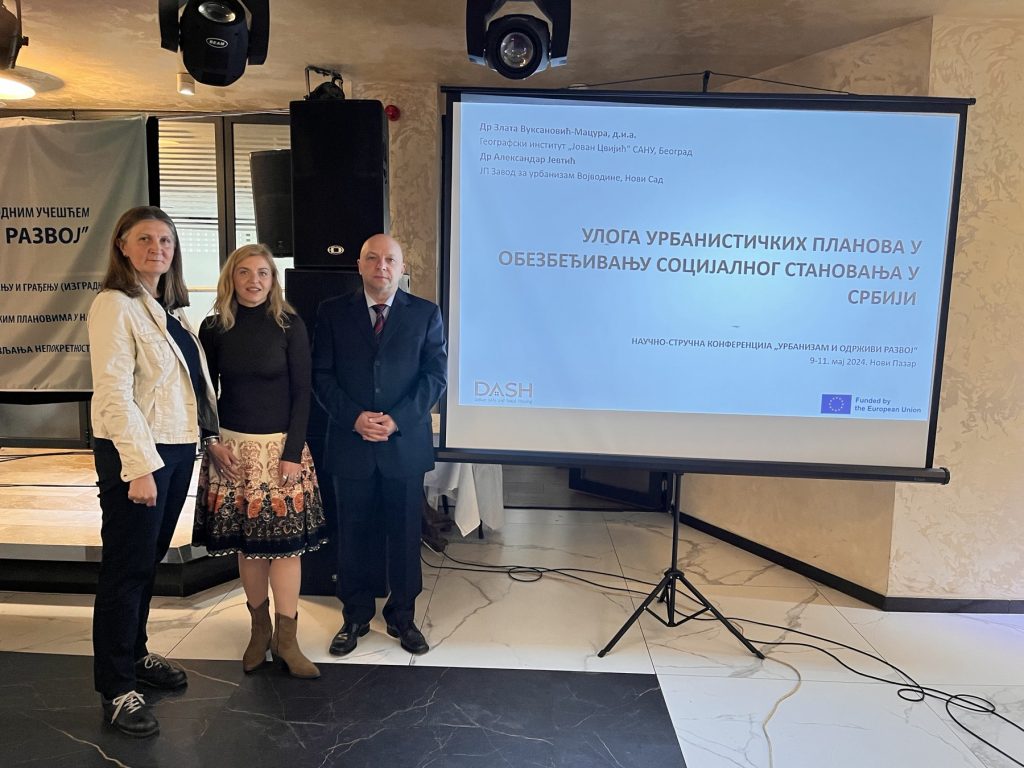By Aleksandar Jevtić
The Serbian Urban Planners Association (SUPA) and the Republic Geodetic Authority organized their 20th international scientific-professional conference “Urbanism and Sustainable Development”, which took place in Novi Pazar (Serbia), from 9 to 11 May, with over 200 participants from Serbia, Republic of Srpska (Bosnia and Herzegovina), Croatia and Sweden. Zlata Vuksanović-Macura, Ivana Momić and Aleksandar Jevtić attended the conference as DASH members.




Credits for images: DASH project 2024
36 papers were presented on important topics in urban planning, geodesy and real estate cadastre, architecture, traffic, spatial planning and other segments of spatial development. They were presented across five sessions:
- Urban planning experiences over 20 years of the application of the “Law on Planning and Building (Construction)”;
- Sustainable city of the future;
- Necessary and desirable forms and parameters in urban plans (general urban indicators, residential units and greenery in them);
- Real estate cadastre for the 21st century;
- The role of professional users in the state real estate management system.
As part of the conference itself, Zlata Vuksanović-Macura presented the paper she wrote with Aleksandar Jevtić, “The Role of Urban Planning in Providing Social Housing in Serbia”, the abstract of which states:
In this paper, we investigate the role of urban planning in providing social housing in Serbia. Social housing is essential in providing affordable and sustainable housing options for low-income individuals and families. In recent years, the issue of social housing has gained traction as cities around the world face rising housing prices and a growing number of individuals experiencing homelessness. Urban planning encompasses the design and development of cities and communities to create environments that are functional, sustainable, and conducive to quality of life. Through land use regulations, transportation planning, and infrastructure development, urban planning aims at creating neighbourhoods that are well-connected, economically viable, and socially inclusive.
Furthermore, the position of social housing within urban plans is critical in ensuring access to essential services and amenities. This paper explores the intersection between planning and construction laws and the contemporary notion of social housing. By analysing the general plans of the major cities Belgrade, Kragujevac, Novi Sad, and Niš, we investigate the extent to which urban planning has influenced the provision of social housing in Serbia over the past twenty years.
The conference reached conclusions that were sent to over 700 e-mail addresses, to individual and collective members of the Association of Urban Planners of Serbia, local governments, public enterprises, state institutions, competent ministries, as well as the media.
Zlata Vuksanović-Macura’s presentation prompted a wide discussion on the topic of social housing as well as housing in general. One of the conclusions of the Conference was that:
Further discussion on the topic of housing in urban development is required, because in recent years housing is increasingly seen as a commodity, while its essential role as a living space and the need for housing to become a social obligation are neglected. Accordingly, it is necessary to give more attention to sustainable planning and housing innovation in urban planning, as well as connect with other sectors that touch on this broad topic.
It was agreed that the next Conference, which will be held at the end of May 2025, will have social housing as one of its main topics, alongside housing in general. The other participants in the DASH project from Portugal, Germany and Denmark will also be expected to take part and present their research on the topic of social housing, in order to share experiences and try to improve the situation in this area in general, because unfortunately the problem is becoming universal.

